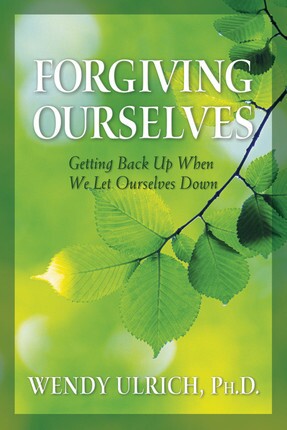Although Latter-day Saints are among the best people I know, they are also among the most self-critical. Too often we work hard to improve and repent and then fail to fully claim the “amazing grace” of Jesus Christ. As a psychologist and as a Church member, I’ve struggled to help clients, missionaries, friends, and colleagues let go of excessive self-blame and like themselves again.
While our repentance ensures God’s forgiveness, we need more than repentance to forgive ourselves. We also need accurate assumptions about the purpose of life and the place of sin and failure. We need to make sense of our past, fix our relationships with other people, and understand how self-forgiveness feels. We may need to update our beliefs about how to stay safe, change our expectations of ourselves, or get off the teeter-totter of shame and pride. We might need spiritual and psychological healing, not just behavior modification, before we can fully receive all that the Savior offers.
►You’ll also like: Elizabeth Smart Shares Powerful Message About Forgiving Her Captors: "Forgiveness Is Another Word for Self-Love"
Depression, anxiety, shame, or anger can distort one’s understanding of gospel principles, even if the calm, rational self knows better. The fearful or shameful part of you may periodically hijack the mature, capable you that usually runs your life. This fearful part may have different ideas about God and His plan than the rest of you.
The first step in the process of self-forgiveness is an accurate understanding of God’s plan of agency, repentance, and Atonement. This plan was laid out in the beginning by our Heavenly Father. It gives us access to the rich but dangerous experiences of mortality with full assurance that we can still return to God. This plan required a perfect Redeemer to live a sinless life and then experience through the Atonement all the consequences of sin and mortality that we undergo here. In this way, He could be our perfect Judge. He fully understands all our grievances against one another. He also fully understands the private pains out of which we injure one another. He fully empathizes with every one of us. In His omnipotence He is uniquely able to pay all our debts to one another, in part because there are no liens against Him.
Satan had, and still has, a different plan—one that requires each of us to be flawless so that no one would suffer at the hands of another. No one would have to feel pain or regret for sin because there would be no sinning. We would all be perfect in the sense of committing no wrongs. But in this plan we could never be perfect in the sense of being whole, complete, and like our Father—who is perfect because He fully understands all the options, none of which are closed to Him, and yet chooses good. There would have been no real need for a Savior in this plan, but Satan wanted the credit for coming up with this alternative plan. He wanted to be the Only Begotten, the beloved and sinless Firstborn. Sometimes we also long for that chosen status out of fear that we cannot really be loved by God unless we too are flawless.
I am increasingly convinced that this is not the purpose of mortality at all. In fact, if this were our charge, our best course of action would be to lie down in our crib on the day we are born and never get up. What would be the point of God sending us here just to become such huge disappointments? No—we are here to do more than demonstrate our capacity for failure or to envy those who die before making a serious mistake. We are here to learn to be like our Father; to learn good from evil by our own experience; to learn to create, love, forgive, and bless; to learn the language of the Spirit; to progress and grow and develop; to exercise our agency to do good. These precious outcomes can be acquired only in a world of agency, challenge, and periodic failure.
►You’ll also like: LDS Psychologist: Changing Your View of Failure Will Increase Your Happiness
We willingly chose to take that challenge, knowing that we would be eternally better off for coming here. We had nothing to lose and everything to gain. Some of us will make more of mortality than others, but all (except the sons of perdition) will be blessed by coming to earth, gaining a body, and stepping out of the crib of innocence and into the school of experience. While here we will both make and be subject to others making a lot of dumb choices. We will learn a lot of useless ideas, be subject to the deceiver, have a lot of human frailties, and commit a lot of sins. Still, we didn’t cling to God’s robes and beg Him not to send us here. We shouted for joy at the chance to come to earth and experience mortality, knowing we also had so much to gain.
We understood then what we don’t see so clearly now: that God is a master, an expert, an absolute genius at turning trash into treasure, stupidity into wisdom, suffering into character, and sin (yes, even sin) into new life—if, and it is a big if—if we will let Him. If we will catch hold of the vision of His redeeming plan and not let go, if we will repent and have faith in the atonement of Christ, then God can not only save but also exalt us, even when we have been “the very vilest of sinners” (Mosiah 28:4).
As my daughter once taught me, “Repentance is not the backup plan; repentance is the plan.” Repentance is not what is left after we have botched the true goal of obedience and undefiled righteousness. When learning from others’ experience and failure has not been enough, repentance is a blessed part of how we get to obedience and undefiled righteousness—learning by our own experience and failure, trusting in God’s love and sure provisions, activating our own reluctant resilience. This is the only path for us.
My culture taught me, “If a thing is worth doing it is worth doing well.” I don’t disagree. It is good to take the time to do better than a shoddy job. But another truth is sometimes even more applicable: “In order to do something well we must first be willing to do it badly" (Julia Cameron, The Artist’s Way: A Spiritual Path to Higher Creativity, 121). Think about learning a language, a sport, a musical instrument; think about learning to run a meeting, care for a baby, drive a car; and then think about being a good home or visiting teacher, parenting a teenager, managing sexual temptation, overcoming addiction, discerning the Spirit, praying meaningfully. Things worth doing are worth doing imperfectly rather than throwing up our hands in defeat or sticking with what is easy and familiar. Doing the right things imperfectly, while we learn to do them better, is far more important than wasting time doing less important but easier things well. The best musicians learn to trust that the music they will ultimately make is more important than today’s wrong notes.
►You’ll also like: Elder Holland: How to Improve Even When We’ve Failed Before
Self-forgiveness requires a mature understanding of the purpose of life, which is not to get back to God in the same state of innocence and purity we were in when we left Him. Rather our charge here is to learn the compassion, humility, discipline, and understanding of good and evil that come only with experience and risk, failure and resilience. Our charge is to get back to God much, much wiser and better than when we left Him, something we can accomplish only through traveling the bruising, bloodying roads of mortal temptation, affliction, and periodic failure, as well as the roads of triumph, satisfaction, and ultimate joy.
Image from Shutterstock
Learn more about forgiving yourself in Wendy Ulrich's book, Forgiving Ourselves: Getting Back Up When We Let Ourselves Down, available at Deseret Book stores and deseretbook.com.
All sin, many repent, but few really forgive themselves and find peace. How can we help our loved ones—and ourselves—let go of past mistakes? Wendy Ulrich, an experienced psychologist, maps the journey from self-blame to self-forgiveness. She shows how the pure doctrines of the restored gospel, coupled with the practical perspectives of psychology, can help us stop harrowing our souls and start planting the seeds of faith, healing, and joy.



